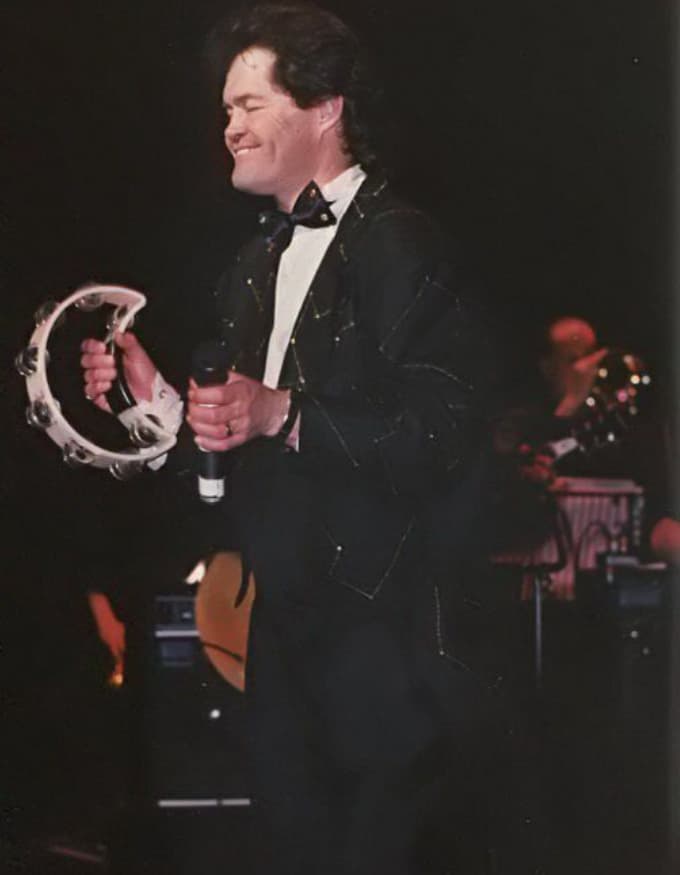
A gentle anthem for the heart: “Do It in the Name of Love”
A wistful plea wrapped in pop melody, this song calls us back to a simpler time of honest sentiment.
When we begin by looking at the essentials: The track Do It in the Name of Love was released in April 1971 (on the successor label Bell Records), credited to **Micky Dolenz & Davy Jones — with an amusing misspelling of Dolenz’s name as “Mickey”. It was recorded in September 1970, during the waning days of the group The Monkees, on what would become their final single of the original era.
As for chart performance: the single failed to chart in the U.S. upon its initial release. It later resurfaced in Japan—with the band’s name still used—and a reissued single in 1981 reached No. 93 on Japan’s Oricon Singles Chart.
Now, stepping back into the story that frames this song:
By 1970, The Monkees were no longer the four‑piece pop phenomenon of their mid‑60s heyday. Two members, Peter Tork and Michael Nesmith, had departed musical involvement, leaving Dolenz and Jones alone to fulfil their contract. The album Changes (released June 1970) would be the last of all‑new material for the band under the original label.
In that context, “Do It in the Name of Love” emerges as a kind of quiet valedictory whisper: recorded in a single session on September 22, 1970, under the production of Jeff Barry, written by Bobby Bloom & Neil Goldberg. Released on Bell Records after Colgems folded, and notably credited as “Mickey Dolenz & Davy Jones” in the U.S. (despite the missing “n”).
In tone and texture, the song carries a yearning simplicity. The lyrics invite:
“Do it in the name of love / If you really want me, that’s reason enough…”
Here is a voice not demanding drama, but asking for sincerity. The music behind it, labelled “bubblegum pop” in some references, may suggest lightness—but the place it occupies emotionally is more contemplative, a gentle nudge toward truth beneath the melodies.
For someone who has lived through the decades, this song may stir the memory of afternoons listening to radio or the warm crackle of vinyl in a living‑room. The context of two long‑time companions of a once‑larger group recording their swan‑song gives the track a softer resonance: it is not triumphant, but tender. It is not at the top of the charts, but perhaps that is part of its charm. The fact that it did not become a hit in the U.S. makes it feel like a hidden gem—an intimate gift to those listening who care to catch it.
What is its meaning? On one level, it is straightforward: an invitation to act from love rather than obligation, to choose the heart’s impulse rather than fear or routine. But when one factors in the broader journey of Dolenz and Jones at that time, the song takes on symbolic weight: two voices saying goodbye to a chapter, offering something true nonetheless. The title itself—“in the name of love”—suggests dedicating one’s act to something greater than self, perhaps to enduring friendship, perhaps to the memory of a shared moment.
Moreover, the fact that the song would find a second life in Japan in the early 1980s underscores how music can travel, age, and touch unexpected places long after its first release. In that sense, it quietly reminds us: some songs do not blaze brightly in their time, but they linger. They stay in the corners of memory.
For listeners today—especially those who lived through pop’s vibrant 1960s into the 70s—this track invites reflection: on past friendships, on the changes of time, on how even modest songs can carry meaning when life around us is shifting. The era that produced The Monkees, with its mix of television, pop, and subculture, is further away now—but the human longing in this song remains near: to be seen, to act from love, to hold something gentle and true.
In writing about it, I find myself drawn to that delicate duality: it is both part of a band’s end‑chapter and yet quietly hopeful. It doesn’t roar—it whispers. And often, in quiet whispers, we hear what the louder songs miss.
So, when you listen to “Do It in the Name of Love”, allow yourself to drift back a little: to the warm wood of a record player’s tone arm, to the distant hum of voices in the room, to the feeling of being younger, hopeful, and willing. Then return to the present, with the understanding that this track remains not because it climbed the charts (it didn’t), but because it waited. Because it was sincere. Because as time moves on, these smaller songs often become our faithful companions.